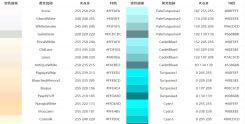- 欢迎使用千万蜘蛛池,网站外链优化,蜘蛛池引蜘蛛快速提高网站收录,收藏快捷键 CTRL + D
Python爬虫常用用法技巧:从基础到实战



Python爬虫是一种自动获取网络信息的技术,常用于数据挖掘、搜索引擎优化等。基本用法包括请求网页、解析网页和存储数据。常用库有requests、BeautifulSoup和Scrapy。
Python爬虫是一种自动化获取网络信息的工具,通常使用Python编程语言来实现,下面是一些Python爬虫常用的用法技巧和基本用法:
1、请求网页数据
使用requests库发送HTTP请求并获取响应数据。
```python
import requests
url = "https://example.com"
response = requests.get(url)
content = response.text
```
2、解析网页数据
使用BeautifulSoup库解析HTML页面并提取所需信息。
```python
from bs4 import BeautifulSoup
soup = BeautifulSoup(content, "html.parser")
title = soup.title.string
```
3、处理分页和翻页
通过分析网页的分页结构,循环发送请求并提取每个页面的数据。
```python
for page in range(1, 10):
url = f"https://example.com/page/{page}"
response = requests.get(url)
content = response.text
# 解析和提取数据的逻辑
```
4、处理重试和异常
使用try-except语句处理请求失败或解析错误等异常情况,并进行相应的重试操作。
```python
for page in range(1, 10):
try:
url = f"https://example.com/page/{page}"
response = requests.get(url)
content = response.text
# 解析和提取数据的逻辑
except requests.exceptions.RequestException as e:
print(f"请求异常: {e}")
# 重试逻辑
```
5、存储数据
根据需求将爬取到的数据存储到文件、数据库或进行进一步处理。
```python
with open("output.txt", "a") as file:
file.write(f"标题: {title}\n")
```
6、使用代理和伪装
使用代理IP和伪装UserAgent来绕过网站的反爬虫机制。
```python
headers = {"UserAgent": "Mozilla/5.0"}
proxies = {"http": "http://proxy.example.com:8080"}
response = requests.get(url, headers=headers, proxies=proxies)
```
7、使用正则表达式
使用re模块中的正则表达式来匹配和提取特定的文本模式。
```python
import re
pattern = r"\d+\.\d+|\d+"
prices = re.findall(pattern, content)
```
8、使用XPath和CSS选择器
使用lxml库结合XPath或CSS选择器来精确定位和提取数据。
```python
from lxml import html
tree = html.fromstring(content)
titles = tree.xpath("//h2/a/text()")
```
9、使用Selenium处理动态内容
使用selenium库模拟浏览器行为,处理JavaScript生成的动态内容。
```python
from selenium import webdriver
driver = webdriver.Chrome()
driver.get(url)
dynamic_content = driver.find_element_by_id("dynamic").text
```
10、遵守爬虫道德规范
尊重网站的Robots协议,合理设置抓取频率,不滥用爬虫资源。
下面是一个关于Python爬虫基本用法的介绍,包括了一些
| 广告位招租-内容页尾部广告(PC) |
蜘蛛技巧最新文章
- 电商设计主要做什么?探究电商平台的设计重点与提升策略
- 在微信中查看别人的朋友圈不会直接在对方的朋友圈记录中留下痕迹。但是,如果你给对方的朋友圈点赞、评论或者转发,对方在朋友圈中会收到通知,并且在对方的朋友圈消息提醒中会有相应记录。
- 1. 如何提升MySQL性能?7种优化方法让数据库运行更高效 2. 为什么你的MySQL数据库速度慢?5种实用技巧帮你解决优化难题
- “为什么苹果8p微信不会爆炸?了解安全科技背后的原理”
- 如何使用PHP发送短信?简单易懂的短信发送接口教程
- 如何选择最适合的Apex服务器?解决方案式标题:10个关键因素帮助您选择合适的Apex服务器
- 如何使用 pv 命令监控 Linux 命令的执行进度: 了解如何实时监控 Linux 命令的运行状态
- 什么是CDN?如何科学理解CDN技术? CDN是什么?如何理解和应用CDN技术?
- AI训练平台GPU:解决训练作业找不到GPU的问题的有效方法
- 如何使用Python搭建网站?简易教程+实战案例 Python搭建网站的基础知识与实践技巧












)


)
)


